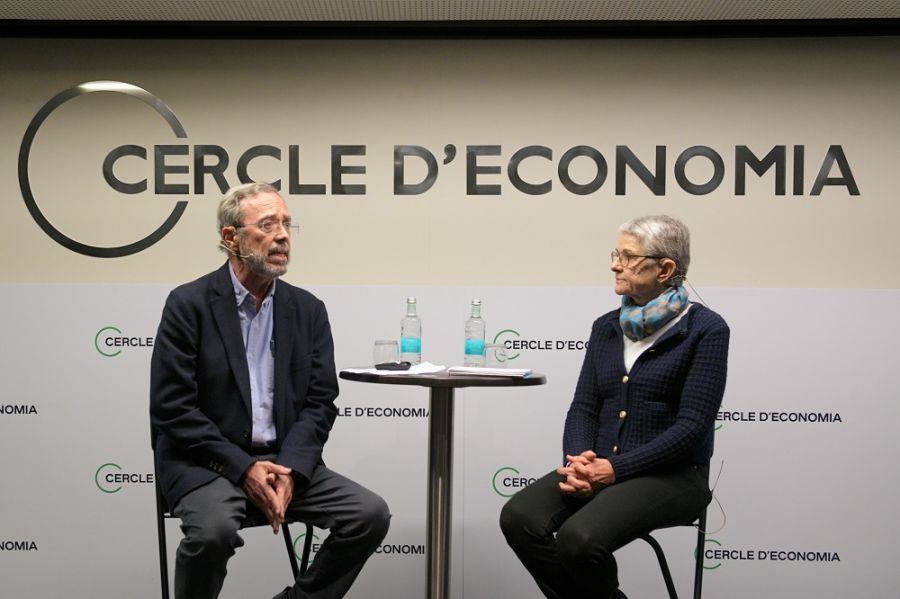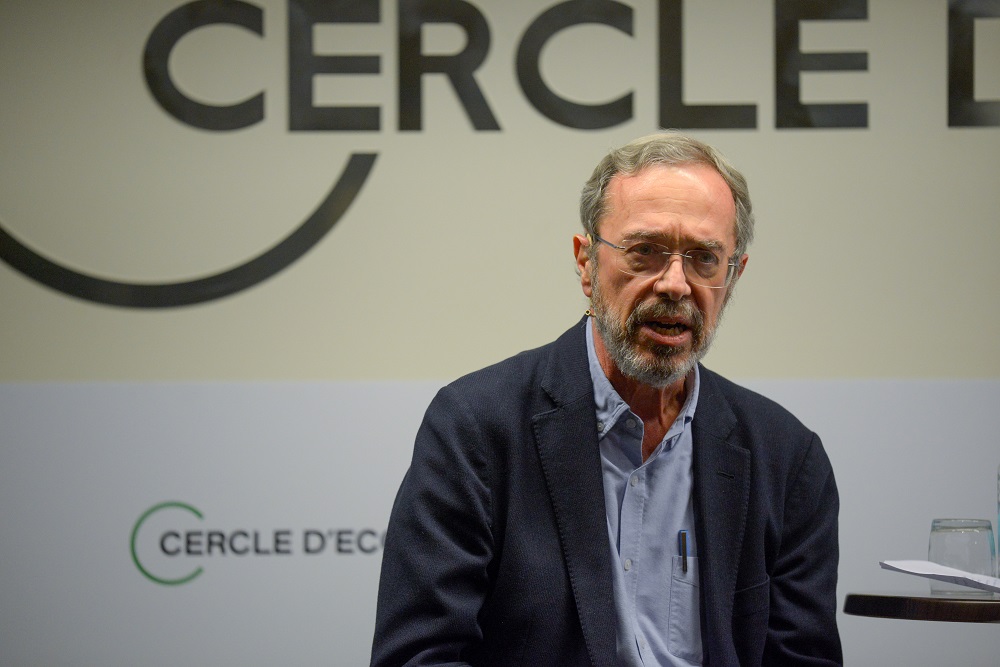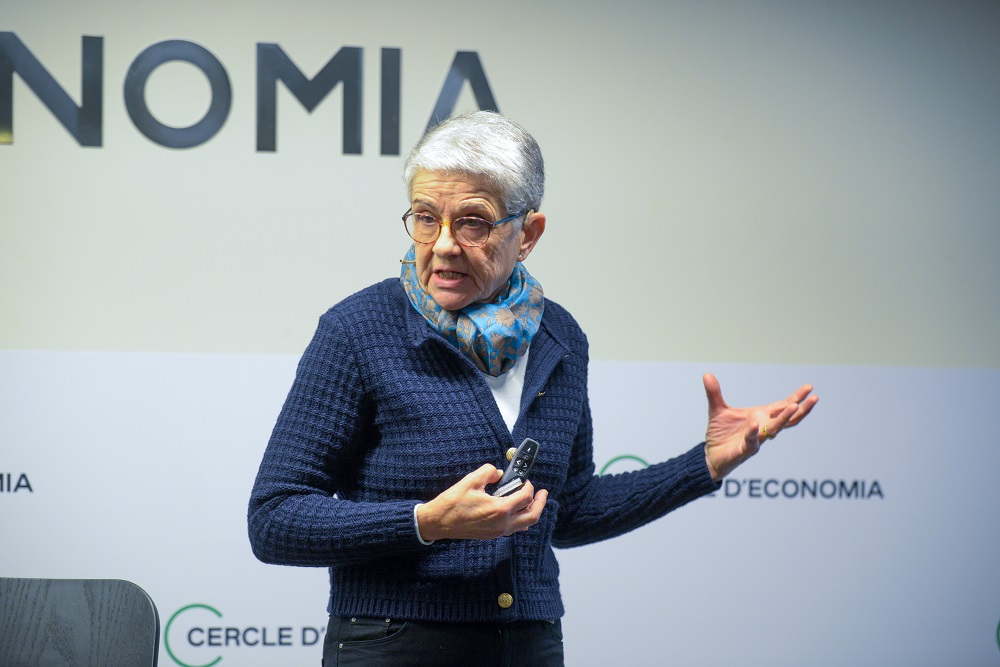
Carles Conill, the president of the Water, Energy, and Environment Commission of the Association of Civil Engineers and a member of the coordination group of the Intercollegiate Water Observatory of Catalonia, and Montse Termes, the director of the water module in the Master in Economics, Regulation, and Competition in Public Services from the University of Barcelona and technical-scientific advisor from Cetaqua-Water Technology Center, debated solutions to the drought as well as strategies to improve water management in Catalonia in the second session of Current Events at Cercle introduced by Jaume Guardiola, president of Cercle d'Economia.

Carles Conill commented that "the water transfer projects that were drawn up at the beginning of this century led to controversies that gave rise to the new water culture that is still in force that has impacted water planning". Conill defended "the new water culture based on desalination and water regeneration" and stated that "it is difficult to understand why the two pending desalination plants are not yet a reality".
The member of the coordination group of the Intercollegiate Water Observatory of Catalonia insisted that "at the Observatory we promote interconnected public water networks in Catalonia to make them more resilient and flexible, which are only to be used in case of emergency while always respecting ecological flows". "We are asking the Government to bring the political parties and the organizations that advocate for the land together to talk about it," he claimed.

Montse Termes stated that "it is of the utmost importance to take all voices into account" and claimed that political compensation should be proposed for sectors that may be affected. Termes defended the importance of planning because "we have strayed a long way from what we aimed to do". She also reflected on the possible feasibility of regenerated water being used to inject into aquifers, thus converting them into a kind of underground reservoir. "It would mean not depending on rainwater so much", stated the technical-scientific advisor of the Cetaqua-Water Technology Center.
The director of the water module of the Master in Economics, Regulation, and Competition in Public Services at the University of Barcelona is committed to "encouraging the use of regenerated water, especially in agriculture, in addition to enhancing the efficiency of distribution networks and, if necessary, increasing rates". She also highlighted the need "to make investments in infrastructure, even if it is not always fully used" and criticized the fact that "the budgets of the Catalan Government do not include line items for water". Termes stated that "saving water is everyone's concern" and she questioned whether all sectors have done the work: "I would like to know if all hotels have taken measures".
When asked about the viability of bringing water in boats, both Carles Conill and Montse Termes agreed that "this cannot be a structural measure". Regarding transferring water from the Roina, both commented that "that's in the past, we have to think about what comes next".